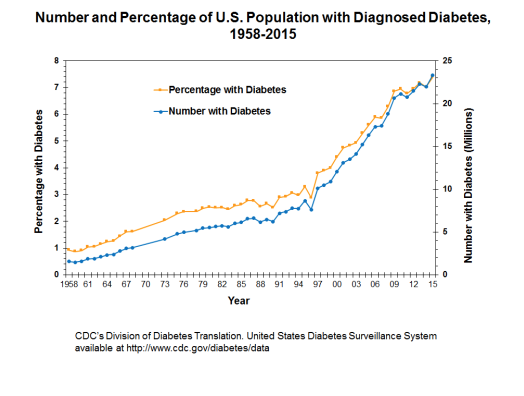There seems to be a few different viewpoints here. Some people see ketosis as:
- a means to weight loss, which would necessarily be employed for a short-term and ended once the weight loss goal was achieved.
- a diet fad.
- a loser with respect to obtaining maximum athletic performance. Presumably, performance is their goal.
- an alternative lifestyle that results in both immediate and long-term health benefits.
There's evidence to support all of these different views. Since they don't necessarily conflict with one another, they could all be true.
Personally, I don't have a weight loss goal. I'm about 50 years old, 5'8", 135 lbs with no health issues. I've been at this weight since I matured from a boy and so I've never dieted or sought a fad solution to a problem I didn't have. Especially at my age, I'm not looking for competitive athletic performance. I saw the recent thread on "Nutrition for Performance vs Long Term Health," and I'm definitely in the category of preferring "overall" health over short-term performance. I'm not just interested in "long-term" health. I don't even know how long I'll have. I am interested in my health right now as well as the longer term. Maybe that's implied in the term "long term," but I think it's important to focus on health here and now and not just performance.
I've not been unconcerned with performance. When I was younger, I raced road-racing motorcycles, and for a long time I've engaged in endurance activities like backpacking, trekking, and mountaineering. Racing taught me that a man will be competitive in his mind even when he can't be in his body. He'll spend his money and do things to try to improve his performance even though a podium will still be out of his reach, much more a win. It's not wrong to circle the track as an "also ran," but it's stupid to incur the same costs as the winner when you get paid nothing for losing.
Endurance taught me what happens when I use more energy than I can carry, consume and digest in carbohydrates. The body switches from glucose metabolism to ketosis. Ketosis is not a fad diet. It's been there all along from the very beginning.
When I wasn't starving somewhere high in the mountains, I was bothered by the swings in blood sugar levels that come from eating "normal" foods -- you know, burgers, fries, and soft drinks. Most of us learned when we were kids what happens when you consume mass quantities of sugar. It was plain to me that to get off the trampoline of sugar highs and lows I had to eat foods with a lower glycemic index. I had cut out the soft drinks because that stuff made me feel awful, but I also cut out juice and caffeine. I chose complex carbs like whole oats, muesli, protein and fat from meats, nuts and olive or avocado oil low in saturated fat. I also continued to eat lots of vegetables. I liked this better than consuming those really high sugar foods. Since I already had low weight and no sign of disease, it's hard to quantify the result, but I can say my LDL/HDL ratio improved from 4:1 to 2.5:1. The doc was stunned that I could make a 37% improvement. Notably, I did this without changing my activity level. It was all a result of changing what I ate.
I had no interest in weight loss or fad diets, but I became more interested in fat versus complex carbs as an energy source. I was interested in ketosis as a metabolic process versus g
luconeogenesis. I'd been in ketosis before when fasting or doing endurance activities but I wanted to try staying in ketosis longer. I found that it works well for me, probably better than the best g
luconeogenesis I was able to practice.
In the process, I became increasingly aware of just how insidious sugar is in our culture. It's disturbing to consider how sugar and carbs (food pyramid) have been promoted because they're economically cheap to produce in mass quantities, addictive, and profitable. The classic dilemma in economics is guns vs butter, but in the case of the US, it's been more like guns & grain. Central planning has promoted cheap carbs to allow greater investment in the military/industrial/tech complex. This isn't some kind of conspiracy theory. It's just basic economics. The result is the US has maintained security, the highest GDP, and leads the world in technology, but its people have suffered drastically increased obesity and major rises in metabolic diseases.
